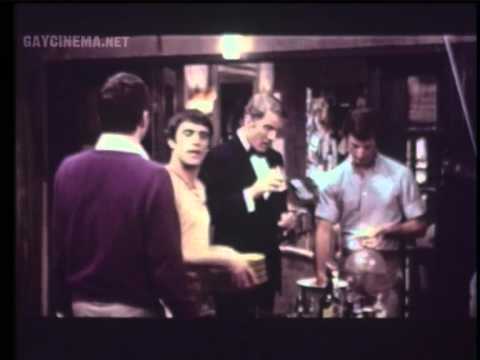“Life. Life’s a goddam laugh riot”
Under a veil of great progression, gay dramas of the early 21st century often depicted doomed victims of their own repressive societies, characters caught between the past and present who couldn’t seem to drive forward. From Jonathan Demme’s Philadelphia, released at the turn of the century, to the groundbreaking Brokeback Mountain, these films rarely depicted joyous love stories and were often tinged with the prejudiced values of modern society.
On the other hand, the latter half of the 21st century has seen some of the greatest achievements in LGBT filmmaking, with films such as Barry Jenkins’ Moonlight and Luca Guadagnino’s Call Me by Your Name reflecting shifting attitudes towards such sexualities. Whilst evidence of prejudice remains, and justly so, these stories focus more on the unabashed pleasures of gay relationships, elevating themselves beyond their LGBT labels to become simply captivating love stories.
Such films may have never had such a platform had it not been for William Friedkin’s 1970 film The Boys in the Band, a story known as a significant milestone in gay representation in Hollywood following the removal of the prohibition of “sexual perversion” in cinema. Films depicting homosexual relationships no longer had to be covert and subtle, and Friedkin’s film was one of the first to proudly announce itself on the Hollywood stage.
Adapted from Mart Crowley’s 1968 off-Broadway play, its story is a bitter and unflinching one that focuses largely on the great hardships of gay men during the 1970s. It all starts when Michael (Kenneth Nelson), a recovering alcoholic, gathers several friends together to celebrate his friend’s 32nd birthday. As the night grows longer, the guests of the party become increasingly drunk and their demeanor ever-more venomous, mocking a young sex worker who turns up at their door, along with a heterosexual friend who is invited.
It’s a spiky film that speaks of the isolation and fear of gay men in the 1970s, many deeply unhappy, and rightfully hurt by the prejudice of a contemporary society. This is likely why a large number of gay audiences didn’t celebrate the film upon its release, believing it was too self-loathing, perpetuating a fatalistic attitude and a negative gay stereotype. Though this criticism is certainly valid, such a story is necessary in order to understand, sympathise and fight against the plight of a dejected group of people. The Boys in the Band recognised and established the fact that the dismay of so many gay men and women was not the result of individual suffering, but of the oppressive prejudice of the system above them.
When discussing conversations regarding homosexual rights was still taboo, Friedkin’s film opened a dialogue, making the troubles of the gay community visible for all to see. Just like Brokeback Mountain 35 years later, The Boys in the Band was a gay tragedy that evoked sympathy and spoke of the vast intolerance that existed in relation to such a community.
Contemporary films such as Moonlight and Call Me by Your Name have the chance to rejoice in gay culture only because of these historic, provocative pieces of LGBT cinema that came before them. It’s a testament to how far we’ve come from the 1970s that stories of gay characters are now becoming commonplace, but it would be foolish and dangerous to assume that such intolerances have now expired.

